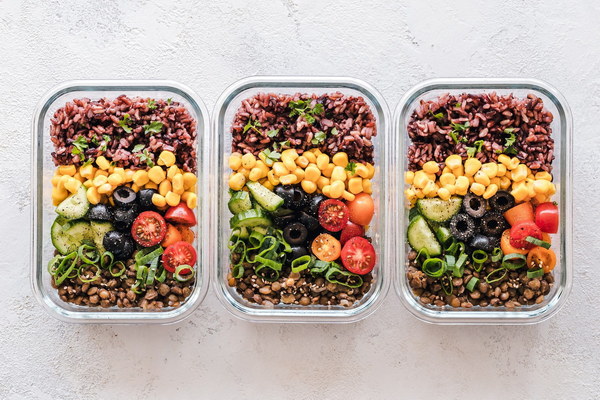Is Eating Whole Grains as a Staple Diet Beneficial for Spleen and Stomach Health
Introduction:

In recent years, the trend of eating whole grains as a staple diet has gained popularity. Many people believe that consuming whole grains can benefit their spleen and stomach health. However, is this claim true? This article will explore the relationship between eating whole grains and spleen and stomach health, providing you with insights into this topic.
1. Understanding the spleen and stomach:
The spleen and stomach are two vital organs in traditional Chinese medicine, responsible for digestion and absorption of nutrients. They play a crucial role in maintaining overall health. When the spleen and stomach are functioning properly, the body can absorb nutrients efficiently and stay healthy.
2. Benefits of whole grains for spleen and stomach health:
Whole grains are rich in fiber, vitamins, minerals, and other nutrients, which can provide the following benefits for spleen and stomach health:
a. Improve digestion: Fiber in whole grains helps to promote the movement of food through the digestive tract, preventing constipation and promoting regular bowel movements. This can help alleviate symptoms of digestive disorders such as irritable bowel syndrome (IBS).
b. Reduce inflammation: Whole grains contain antioxidants that can help reduce inflammation in the gastrointestinal tract, which may alleviate symptoms of conditions such as inflammatory bowel disease (IBD).
c. Enhance nutrient absorption: The fiber in whole grains can help slow down the absorption of glucose into the bloodstream, leading to more stable blood sugar levels. This can improve the overall health of the spleen and stomach, as they are responsible for nutrient absorption and blood sugar regulation.
3. Choosing the right whole grains:
To maximize the benefits of whole grains for spleen and stomach health, it is important to choose the right types of whole grains. Some popular whole grains include:
a. Brown rice: Brown rice is rich in fiber, vitamins, and minerals, making it an excellent choice for spleen and stomach health.
b. Quinoa: Quinoa is a gluten-free, high-protein grain that is easy to digest and can help improve overall digestive health.
c. Oats: Oats are rich in beta-glucan, a type of fiber that can help reduce cholesterol levels and improve digestive health.
4. How to incorporate whole grains into your diet:
To incorporate whole grains into your diet and promote spleen and stomach health, consider the following tips:
a. Gradually increase your intake: If you are new to consuming whole grains, start by incorporating small amounts into your diet and gradually increase your intake over time.
b. Experiment with different whole grains: Try incorporating different whole grains into your diet to find which ones you enjoy the most.
c. Prepare whole grains properly: Cook whole grains according to package instructions or until they are tender. This can help ensure that you are getting the most nutritional benefits.
Conclusion:
Eating whole grains as a staple diet can indeed be beneficial for spleen and stomach health. By incorporating a variety of whole grains into your diet, you can improve digestion, reduce inflammation, and enhance nutrient absorption. Remember to choose the right whole grains and prepare them properly to maximize their benefits. Embracing a whole grain-rich diet may contribute to a healthier spleen and stomach, ultimately leading to better overall health.









